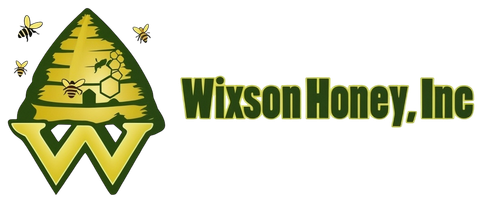Beekeeping 101: Essential Equipment for Beginner Beekeepers (Part 1 of the Beekeeping Series)
In this guide, we'll introduce the key pieces of equipment every beginner needs to start beekeeping safely and effectively.
Beekeeping is a fulfilling, eco-friendly hobby that promotes sustainability and offers the added bonus of producing your own honey. To succeed in this venture, having the right beekeeping equipment is essential, especially for beginners. Whether you're just starting or looking to enhance your skills, the tools you use can make all the difference in creating a safe, productive beekeeping experience.
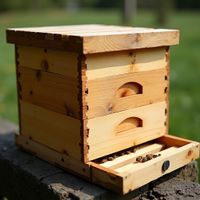
Beehive
Pro Tip: Opt for pre-assembled frames to simplify your initial setup and ensure a smooth start.
The beehive is the foundation of your beekeeping operation. For beginners, the Langstroth Hive is the most commonly recommended choice. This hive consists of stacked boxes where bees build their honeycomb and store honey. Essential components include a bottom board, hive boxes (also called supers), frames for the bees to build their comb, an inner cover, and an outer cover to protect the hive from weather conditions.
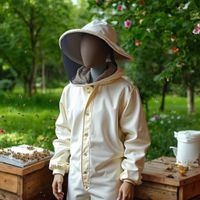
Beekeeping Suit
Beginner Tip: Choose a suit with elastic cuffs at the wrists and ankles to prevent bees from sneaking inside.
Safety is the top priority when working with bees, and a beekeeping suit provides full-body protection. The suit includes a built-in veil to shield your face and neck—two areas prone to painful stings. Light-colored suits are recommended as bees are less attracted to lighter hues, which helps keep them calm during hive inspections.
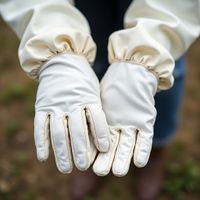
Gloves
Gloves are essential for beginners to protect against bee stings while handling the hive. Leather gloves provide durability and excellent protection, while goatskin gloves offer more flexibility and dexterity, allowing for precise handling of frames and bees. As you gain experience, you may choose to work without gloves, but for beginners, they provide much-needed confidence.
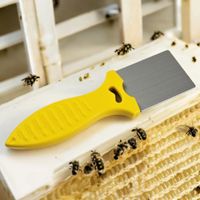
Hive Tool
A hive tool is a must-have, multifunctional device that helps you perform essential maintenance in the hive. It is used as a lever to separate the hive boxes and frames, which may become stuck together with propolis, a resinous substance produced by bees. The hive tool also scrapes off excess wax and removes debris, making it an indispensable tool for routine inspections.
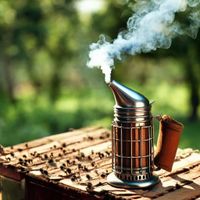
Smoker
Tip: Always keep your smoker on hand during hive inspections to ensure a safe and stress-free experience.
A bee smoker is a crucial tool to keep bees calm during inspections. The cool, gentle smoke emitted from the smoker masks the bees' alarm pheromones and prompts them to retreat further into the hive. Common smoker fuel materials include pine needles, wood chips, or burlap.
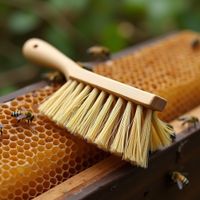
Bee Brush
A bee brush is designed to gently sweep bees off frames or hive surfaces without harming them. It is particularly useful when harvesting honey or inspecting brood frames. Opt for a brush with soft, long bristles to avoid disrupting the bees unnecessarily.
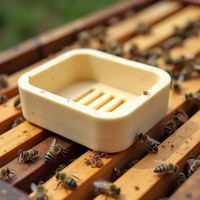
Frame Feeder or Entrance Feeder
During times of nectar scarcity, such as colder months or droughts, providing additional food for your bees is essential. Frame feeders or entrance feeders supply sugar syrup to the hive, ensuring that the colony remains healthy when natural food sources are limited. Proper feeding practices help your bees thrive, even in challenging conditions.
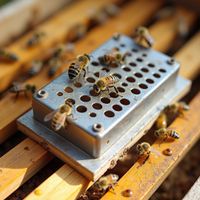
Queen Excluder
A queen excluder is a grid placed between the brood chamber and the honey super. This grid allows worker bees to pass through while preventing the larger queen bee from entering the honey super. By keeping brood (bee larvae) out of the honey, the excluder ensures that your harvested honey is pure and uncontaminated.
Conclusion
We offer all the essentials for beekeeping, ensuring you have everything needed to embark on this sustainable and fulfilling adventure.
Beekeeping is an exciting and rewarding journey, but starting with the right equipment is essential for success. Whether you need beehives, gloves, or a smoker, having these key tools will help you confidently care for your bees and produce your own honey. Remember that beekeeping is a gradual learning process, so take your time, enjoy the experience, and continue to grow your skills.
